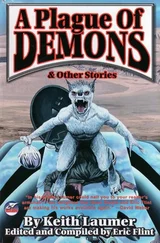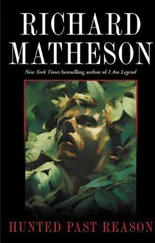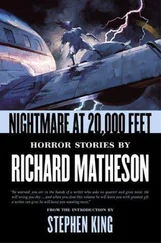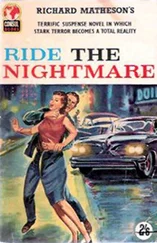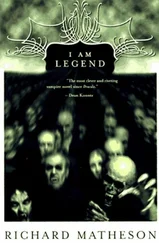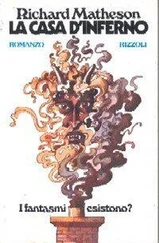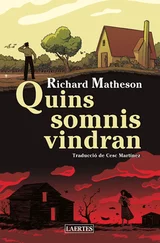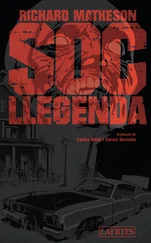“What about the second time it happened?” I asked. “The first time wasn’t bad; I just observed. The second time, I relived each moment.”
“Only in your mind,” he said. “You didn’t actually relive them.”
“It seemed as though I did.”
“Yes, it seems very real,” he agreed.
“And painful.”
“More so than it did originally,” he said, “because you had no physical body to dull the pain of your re-experienced life. It’s a time when men and women come to know what they truly are. A time of purging.”
I’d been looking at the ceiling as he spoke. At his final words, I turned to face him in surprise. “Is that what the Catholics mean by purgatory?”
“In essence.” He nodded. “A period during which each soul is cleansed by a self-imposed recognition of past deeds-and misdeeds.”
“Self imposed,” I repeated. “There really is no outside judgment then?”
“What condemnation could possibly be more harsh than one’s own when self-pretense is no longer possible?” he asked.
I turned my face away from him and looked out at the countryside. Its beauty seemed to make the memories of my shortcomings all the more acute; especially those concerning Ann. “Is anyone ever happy with what they reexperience?” I asked.
“I doubt it,” he said. “No matter who they are, I’m sure they all find fault in themselves.”
I reached down and began to stroke Katie’s head. If it hadn’t been for my memories, it would have been a lovely moment: the beautiful house, the exquisite landscape, Albert sitting across from me, Katie’s warm head under my fingers.
There were the memories though.
“If only I’d done more for Ann,” I said. “For my children, my family, my friends.”
“That’s true of almost everyone, Chris,” he said. “We all could have done more.”
“And now it’s too late.”
“It isn’t quite that bad,” he said. “Part of what you’re feeling is a sense of incompletion because you didn’t get to appraise your life as fully as you should have.”
I looked at him again. “I’m not sure I understand that,” I said.
“Your wife’s grief and your concern for her kept you from it,” he said. His smile was understanding. “Take comfort from what you’re feeling, Chris. It means you really are concerned about her welfare. If you weren’t, you wouldn’t feel as you do.”
“I wish I could do something about it,” I told him.
Albert stood. “We’ll talk about it later,” he said. “Sleep now-and, until you know what you want to do, plan on staying here with me. There’s plenty of room and you’re more than welcome.”
I thanked him as he came over and squeezed my shoulder. “I’m going now,” he said. “Katie will keep you company. Think of me when you wake and I’ll be here.”
Without another word, he turned and walked from the study. I stared at the doorway he’d gone through. Albert, I thought. Cousin Buddy. Dead since 1940. Heart attack. Living in this house. I couldn’t seem to get it through my head that all of it was real.
I looked at Katie lying on the floor beside the sofa. “Kate, old Kate,” I said. Her tail thumped twice. I remembered the blinding tears that afternoon we’d left her at the vet’s. Now here she was, alive, looking at me once more with that bright expression.
I sighed and looked around the room. It, too, looked completely real. I smiled, recalling the French Provincial room in Kubrick’s 2001 . Was I being held captive by some alien being? I had to chuckle at the thought.
I noticed, then, there was no mirror in the room and realized that I had not seen a mirror in the entire house. Shades of Dracula , I thought, amused again. Vampires here? I had to chuckle again. How did one locate the separating line between imagination and reality?
For instance, was I imagining it or was the light in the room really becoming more subdued?

Ann and I were in Sequoia National Forest. Hand in hand, we moved beneath the giant redwood trees. I could feel her fingers linked with mine, hear the crunching of our shoes across the carpet of dry needles on the ground, smell the warm, aromatic odor of the tree bark. We didn’t speak. We walked side by side, surrounded by the beauty of nature, taking a stroll before dinner.
We’d walked about twenty minutes before we reached a fallen tree and sat on it. Ann released a weary sigh. I put an arm around her and she leaned against me. “Tired?” I asked.
“A little.” She smiled. “I’ll be fine.”
It had been a strenuous if pleasant experience for us. We’d pulled a rental trailer up the steep hill to Sequoia, our Rambler wagon overheating twice. We’d set up a tent with six cots inside, stored all our supplies in a wooden chest so the bears couldn’t get them. We had a Coleman lantern but not a stove so had to maintain a fire under the grate provided by the campground. Most difficult, we had to heat washing water once each day for Ian’s diapers; he was only one and a half at the time. The camp looked like a laundry, diapers and baby clothes hanging on lines in all directions.
“We’d better not leave them too long,” Ann said after we’d rested a while. The woman in the campsite next to us had offered to keep an eye on the children but we didn’t want to over-do the imposition since Louise, the oldest, was only 9, Richard 6?, Marie not quite 4, and even our “watch dog,” Katie, less than a year old.
“We’ll go back soon,” I said. I kissed her slightly damp temple and squeezed her. “Just rest a few more minutes.” I smiled at her. “It’s pretty here, isn’t it?”
“Beautiful.” She nodded. “I sleep here better than at home.”
“I know you do.” Ann’s nervous breakdown had come two years earlier; she’d been in analysis a year and a half now. This was the first major trip we’d made since her breakdown; at the insistence of her analyst.
“How’s your stomach doing?” I asked.
“Oh, it’s-better.” She answered unconvincingly. She’d had stomach problems ever since I’d met her; how incredibly unaware I’d been not to realize it meant something serious. Since her breakdown, the condition had improved but still disturbed her. As her analyst had told her: the deeper buried the distress, the further into the body it went. The digestive system was about as far as it could go to hide.
“Maybe we can buy a camper one of these days,” I said; she’d suggested it that morning. “It would make preparing meals a lot easier. Make the whole experience easier.”
“I know, but they’re so expensive,” she said. “And I’m costing so much already.”
“I should start making more now that I’m writing for television,” I told her.
She squeezed my hand. “I know you will.” She lifted the hand to her lips and kissed it. “The tent is fine,” she said. “I don’t mind it at all.”
She sighed and looked up at the redwood foliage high above, bars of sunlight slanting through it. “I could stay here forever,” she murmured.
“You could be a forest ranger,” I said.
“I wanted to be one,” she told me. “When I was a little girl.”
“Did you?” The idea made me smile. “Ranger Annie.”
“It seemed like a wonderful way to escape,” she said.
Poor love. I held her tightly against myself. She’d had so much to escape from too.
“Well.” She stood. “We’d better mosey on back, Chief.”
“Right.” I nodded, standing. “The path curves around, we don’t have to go back the same way.”
“Good.” She smiled and took my hand. “Here we go then.”
Читать дальше


